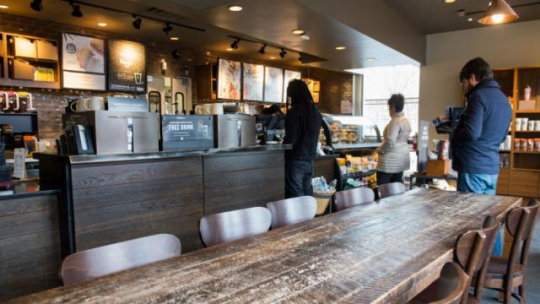
In the wake of the controversial arrests
of two black men waiting for a friend within a Philadelphia Starbucks, the
coffee giant announced it will close its more than 8,000 U.S. stores on May 29
to provide training on unconscious racial bias. Additionally, the company is
instituting a new policy in which “any person who enters our spaces,
including patios, cafes and restrooms, regardless of whether they make a
purchase, is considered a customer.”
Since the Starbucks incident in April, similar scenarios have
played out at LA Fitness and Nordstrom
Rack. At an LA Fitness in New Jersey, employees called 911 on two black men
who they said didn’t pay — even though they had already paid for membership
passes. Employees at a Nordstrom Rack near St. Louis called the police on three
black teens who were shopping for prom, wrongly accusing them of shoplifting.
The RTP team
discusses whether Starbucks’ actions are a strong enough response to the
controversy and shares what steps retailers might take to be proactive about
issues around racial, sexual and other forms of bias.
Debbie Hauss,
Editor-in-Chief: At the very least, the effort Starbucks is making to
address the situation is commendable. It’s been estimated that the company
is forfeiting approximately $12 million in revenue by
closing the 8,000 U.S. stores for one day. I think Starbucks generally does a good
job of taking on controversial topics in a productive way. I am not sure how
we’ll be able to judge the impact of the training, but I’d like to see all
other companies put this type of training into effect on a regular basis. The
more we acknowledge and discuss these types of issues openly, I think there’s
less of a chance that the situation will elevate into a more difficult,
violent and dangerous outcome.
Adam Blair, Executive
Editor: First, I applaud Starbucks for taking the step of closing its stores
to address issues of racial bias. If nothing else, the company’s dramatic
action identifies this as a major problem — one worth sacrificing a day’s worth
of sales to address. Obviously, much more far-reaching and systematic change
needs to occur, but this represents a start. For me, the fact that so many of
these incidents are taking place in retail settings provides an opportunity for empathy.
Because I’m white, I haven’t experienced the overt and covert discrimination
that people of color must deal with on a daily basis. However, because retail
experiences are a common denominator, I can at least imagine what
it would be like to be the subject of suspicious scrutiny in a coffee shop or a
clothing store. It seems to me that privileged people like myself need to walk
a mile (or an aisle) in someone else’s shoes for any of this to change.
Glenn Taylor, Senior
Editor: Whether anyone wants to admit it or not, these problems can surface
almost everywhere. I’m glad Kevin Johnson and Co. were at least willing to take
fast action to address the complete failure to act properly of one store’s
management team, understanding that a few bad apples can ruin an operation
pretty easily. Whether taking the entire day off for training is worth it will depend
highly on how serious the training is, so this isn’t over yet. But I think that
for the training process to start, any retail or hospitality company needs to
acknowledge that there are other factors in a good customer experience beyond
product knowledge and good conversation. Simply put, people still need to feel
comfortable throughout the process. With that said, the training can’t just be
a one-off — it’s incredibly easy for people to forget things that occur during
the training process, or simply ignore them overall if they aren’t hammered
into their thoughts consistently.
Bryan Wassel,
Associate Editor: While Starbucks no doubt has its heart in the right
place, it runs the risk of being seen as opportunistic by some shoppers.
Sacrificing a whole day is a big, headline-grabbing event and a serious
financial sacrifice, but it’s also a one-off solution spearheaded by a company
that has come under fire for similar attempts in the past, such as asking baristas to write Race Together on cups. The
retailer might be better off with a subtler but longer-term campaign that
expresses continued adherence to the values its espouses, such as making racial
sensitivity training a small but regular part of its onboarding process. Other
retailers should implement their own solutions as well, proactively generating
goodwill while working to make the world a better place.






